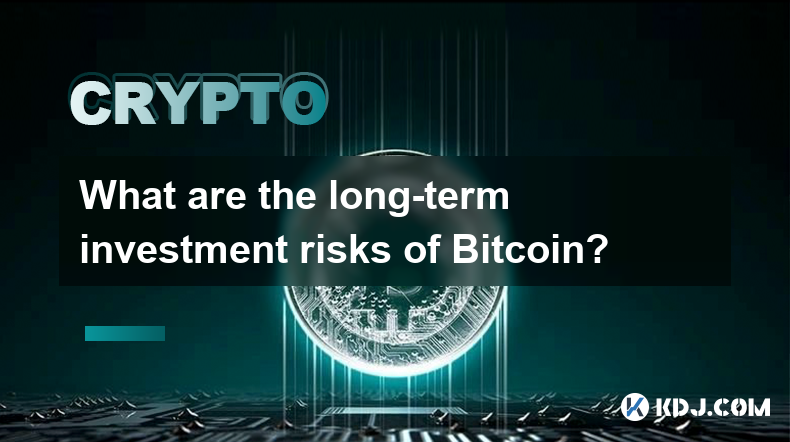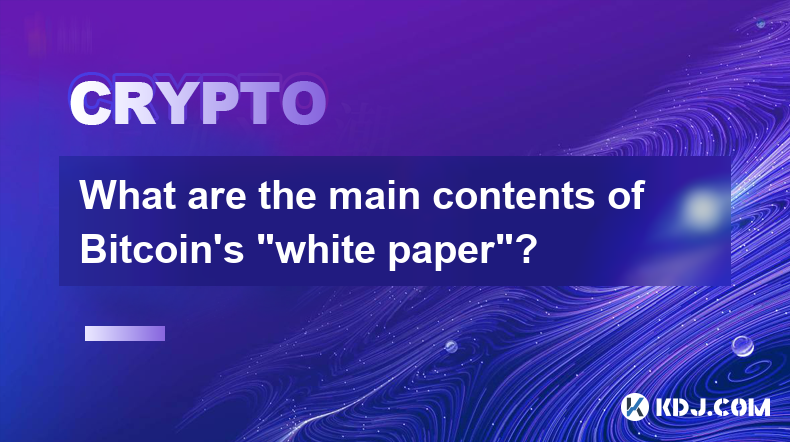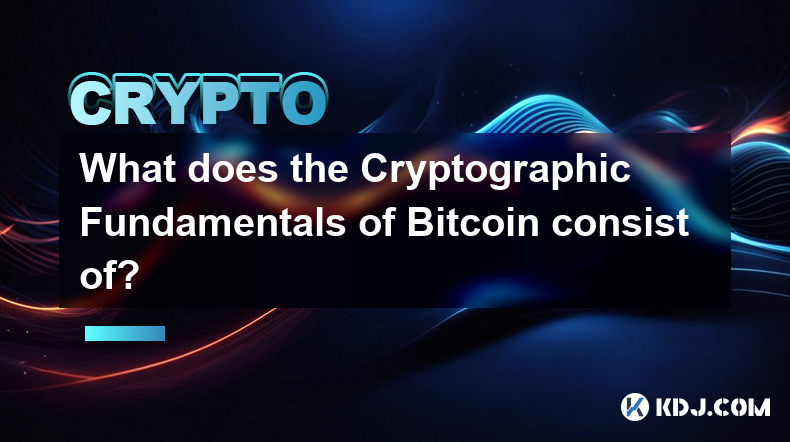-
 Bitcoin
Bitcoin $96,161.2493
-2.14% -
 Ethereum
Ethereum $2,686.5756
-2.45% -
 XRP
XRP $2.5719
-3.67% -
 Tether USDt
Tether USDt $0.9999
-0.04% -
 BNB
BNB $655.8976
-0.15% -
 Solana
Solana $171.9849
-2.65% -
 USDC
USDC $1.0001
0.00% -
 Dogecoin
Dogecoin $0.2435
-4.35% -
 Cardano
Cardano $0.7615
-4.97% -
 TRON
TRON $0.2379
-4.28% -
 Chainlink
Chainlink $17.4447
-5.17% -
 Avalanche
Avalanche $24.9624
-1.92% -
 Sui
Sui $3.3374
-3.85% -
 Stellar
Stellar $0.3266
-3.96% -
 Litecoin
Litecoin $127.2255
-5.17% -
 Toncoin
Toncoin $3.6609
1.73% -
 Shiba Inu
Shiba Inu $0.0...01526
-2.42% -
 UNUS SED LEO
UNUS SED LEO $9.7275
-0.32% -
 Hedera
Hedera $0.2145
-3.18% -
 Hyperliquid
Hyperliquid $24.2706
-2.62% -
 Polkadot
Polkadot $5.0883
0.29% -
 MANTRA
MANTRA $7.6370
0.37% -
 Bitcoin Cash
Bitcoin Cash $317.1514
-3.50% -
 Bitget Token
Bitget Token $5.0005
7.55% -
 Ethena USDe
Ethena USDe $0.9987
-0.10% -
 Dai
Dai $1.0000
-0.01% -
 Uniswap
Uniswap $8.8025
-5.45% -
 Monero
Monero $233.1225
-0.50% -
 NEAR Protocol
NEAR Protocol $3.4727
-2.15% -
 Pepe
Pepe $0.0...09302
-4.88%
How does the mining mechanism of SUI coins work?
Sui Network's innovative dual-token PoS system combines SUI tokens for network participation and SUIx tokens for validator voting power, incentivizing validators and delegators to secure the blockchain and earn rewards through energy-efficient transaction processing.
Feb 18, 2025 at 09:12 pm

Key Points:
- Overview of Proof-of-Stake (PoS) and Proof-of-Work (PoW) mechanisms
- Implementation of a dual token system: SUI and SUIx
- Role of validators and delegators in the Sui blockchain
- Process of block creation and validation
- Economic incentives and rewards for participating in the Sui network
How does the mining mechanism of SUI coins work?
Sui Network employs a unique Proof-of-Stake (PoS) consensus mechanism optimized for securing its blockchain and processing transactions efficiently. Unlike traditional Proof-of-Work (PoW) systems that rely on computational power for block validation, Sui leverages the holding and delegation of SUI tokens to maintain network stability and security.
Implementation of a dual token system:
Sui Network utilizes a dual token system, consisting of SUI and SUIx tokens. SUI tokens represent the native currency of the network and are primarily used for transaction fees and network participation. On the other hand, SUIx tokens are non-transferable tokens that represent the voting power of validators and delegators.
Role of validators and delegators:
Validators are responsible for proposing and validating new blocks on the Sui blockchain. To become a validator, one must stake a minimum amount of SUI tokens. Delegators, on the other hand, can participate in the network by delegating their SUI tokens to validators. Delegators share in the rewards earned by their chosen validator.
Process of block creation and validation:
- Block proposal: Validators propose new blocks to the network by including a set of transactions in their proposed block.
- Block voting: Other validators then vote on the proposed block to determine its validity. If a majority of validators approve the block, it is added to the blockchain.
- Transaction finalization: Once a block is added to the blockchain, the transactions included in that block are considered final and irreversible.
Economic incentives and rewards:
The Sui network incentivizes validators and delegators to participate in the network through various rewards and penalties. Validators earn rewards for proposing and validating blocks, while delegators earn a portion of the rewards earned by their chosen validator. Conversely, validators can be penalized for proposing invalid blocks or engaging in malicious activity.
FAQs:
Q: What are the advantages of the Sui PoS mechanism?
- Energy efficiency: PoS mechanisms consume significantly less energy compared to PoW systems.
- Scalability: Sui's PoS mechanism supports high transaction throughput and scalability.
- Fair participation: Token holders have the opportunity to participate in network governance and earn rewards.
Q: Can anyone become a validator on the Sui network?
- Yes, anyone who stakes the minimum amount of SUI tokens can become a validator and participate in block validation.
Q: What is the role of SUIx tokens in the Sui network?
- SUIx tokens represent voting power and are used by validators and delegators to participate in network governance and consensus.
Disclaimer:info@kdj.com
The information provided is not trading advice. kdj.com does not assume any responsibility for any investments made based on the information provided in this article. Cryptocurrencies are highly volatile and it is highly recommended that you invest with caution after thorough research!
If you believe that the content used on this website infringes your copyright, please contact us immediately (info@kdj.com) and we will delete it promptly.
- Tether Launches TradeFi, a Blockchain-Based Financial Service Aimed at Optimizing International Trade
- 2025-02-22 17:00:25
- Altcoin Season Has Begun, Proclaims CryptoQuant CEO Ki Young Ju
- 2025-02-22 17:00:25
- Bybit Hack: Crypto Exchange Loses $1.4B in ETH, Market Cap Drops 1.86% to $3.17 Trillion
- 2025-02-22 17:00:25
- Ethereum (ETH), FTX Token (FTT), Coinbase, stETH, and Blur (BLUR) Are the Top 5 Most Attention-Grabbing Cryptocurrency-Related Keywords
- 2025-02-22 17:00:25
- Bybit Hack: Exchange Loses Over $1.1 Billion in Ethereum in One of the Biggest Security Breaches Ever
- 2025-02-22 17:00:25
- How to Build a Crypto Price Alert System Using CoinGecko and Python
- 2025-02-22 17:00:25
Related knowledge

What are the long-term investment risks of Bitcoin?
Feb 22,2025 at 05:30pm
Key PointsVolatility and price fluctuationsRegulatory uncertaintySecurity risksCompetition from altcoinsMarket manipulation and scamsTransaction feesEnvironmental concernsLong-Term Investment Risks of BitcoinVolatility and Price FluctuationsBitcoin's high volatility is a double-edged sword. While it has the potential to generate substantial returns, it ...

What are the main contents of Bitcoin's "white paper"?
Feb 21,2025 at 04:36am
Key Points:Understanding Bitcoin's Genesis: The White Paper's IntroductionA Decentralized Digital Currency: Bitcoin's Core ConceptBlockchain Technology: The Foundation of Bitcoin's Immutable LedgerProof-of-Work: Securing Bitcoin's NetworkThe Design of Bitcoin's Currency: Issuance, Scarcity, and DivisibilityBitcoin's Potential Applications and Future Pro...

What does the Cryptographic Fundamentals of Bitcoin consist of?
Feb 21,2025 at 12:06pm
Key PointsUnderstanding the cryptographic algorithms used in BitcoinFamiliarization with the Bitcoin blockchain and its underlying mechanicsExamination of the security measures that protect Bitcoin from attackAnalysis of the decentralized nature of Bitcoin and its implicationsDiscussion of the scalability and transaction fee issues associated with Bitco...

How do Bitcoin mining pools work?
Feb 21,2025 at 09:07pm
Key Points of Bitcoin Mining Pools:Understanding Bitcoin Mining PoolsSteps to Join a Bitcoin Mining PoolChoosing the Right Mining PoolBenefits and Considerations of Mining PoolsHow do Bitcoin mining pools work?Understanding Bitcoin Mining PoolsBitcoin mining pools are distributed networks of mining participants who combine their computing power to solve...

What role does Bitcoin's hash function play in the system?
Feb 21,2025 at 09:06am
Key PointsSecure Data Storage: The hash function safeguards data within Bitcoin's blockchain, ensuring its immutability and integrity.Transaction Verification: The hash function plays a crucial role in verifying transactions and maintaining the network's consensus.Security against Double-Spending: The hash function helps prevent double-spending by crypt...

What is the initial purchase and transaction process for Bitcoin?
Feb 20,2025 at 01:00pm
Key Points:Understanding the concept of BitcoinCreating a Bitcoin walletFunding your Bitcoin walletPurchasing Bitcoin through an exchangeConfirming and receiving BitcoinInitial Purchase and Transaction Process for Bitcoin1. Understanding BitcoinBitcoin is a decentralized digital currency created in 2009 by an unknown individual or group using the pseudo...

What are the long-term investment risks of Bitcoin?
Feb 22,2025 at 05:30pm
Key PointsVolatility and price fluctuationsRegulatory uncertaintySecurity risksCompetition from altcoinsMarket manipulation and scamsTransaction feesEnvironmental concernsLong-Term Investment Risks of BitcoinVolatility and Price FluctuationsBitcoin's high volatility is a double-edged sword. While it has the potential to generate substantial returns, it ...

What are the main contents of Bitcoin's "white paper"?
Feb 21,2025 at 04:36am
Key Points:Understanding Bitcoin's Genesis: The White Paper's IntroductionA Decentralized Digital Currency: Bitcoin's Core ConceptBlockchain Technology: The Foundation of Bitcoin's Immutable LedgerProof-of-Work: Securing Bitcoin's NetworkThe Design of Bitcoin's Currency: Issuance, Scarcity, and DivisibilityBitcoin's Potential Applications and Future Pro...

What does the Cryptographic Fundamentals of Bitcoin consist of?
Feb 21,2025 at 12:06pm
Key PointsUnderstanding the cryptographic algorithms used in BitcoinFamiliarization with the Bitcoin blockchain and its underlying mechanicsExamination of the security measures that protect Bitcoin from attackAnalysis of the decentralized nature of Bitcoin and its implicationsDiscussion of the scalability and transaction fee issues associated with Bitco...

How do Bitcoin mining pools work?
Feb 21,2025 at 09:07pm
Key Points of Bitcoin Mining Pools:Understanding Bitcoin Mining PoolsSteps to Join a Bitcoin Mining PoolChoosing the Right Mining PoolBenefits and Considerations of Mining PoolsHow do Bitcoin mining pools work?Understanding Bitcoin Mining PoolsBitcoin mining pools are distributed networks of mining participants who combine their computing power to solve...

What role does Bitcoin's hash function play in the system?
Feb 21,2025 at 09:06am
Key PointsSecure Data Storage: The hash function safeguards data within Bitcoin's blockchain, ensuring its immutability and integrity.Transaction Verification: The hash function plays a crucial role in verifying transactions and maintaining the network's consensus.Security against Double-Spending: The hash function helps prevent double-spending by crypt...

What is the initial purchase and transaction process for Bitcoin?
Feb 20,2025 at 01:00pm
Key Points:Understanding the concept of BitcoinCreating a Bitcoin walletFunding your Bitcoin walletPurchasing Bitcoin through an exchangeConfirming and receiving BitcoinInitial Purchase and Transaction Process for Bitcoin1. Understanding BitcoinBitcoin is a decentralized digital currency created in 2009 by an unknown individual or group using the pseudo...
See all articles

















![BONK The Meme Coin MORE THAN ORDINARY [DOG] on Solana BONK The Meme Coin MORE THAN ORDINARY [DOG] on Solana](/uploads/2025/02/22/cryptocurrencies-news/videos/bonk-meme-coin-ordinary-dog-solana/image-1.jpg)


































































